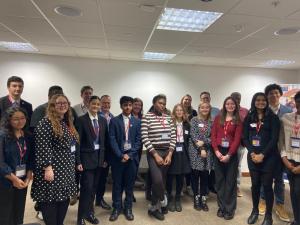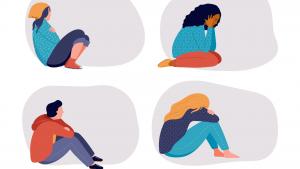It has been a huge honour of mine to work with disabled children and young people to develop the report “We all have a voice”: Disabled children’s vision for change. In this series of blogs, I want to talk about some of the biggest challenges disabled children told me they face, and the changes they want to see.
Many children’s impairments and conditions are particularly disabling because their needs are not identified early enough, and the right support is not put in place. This can be detrimental to a child’s ability to lead a happy life, including being able to make friends and participate fully in school and their community.
As one 13-year-old boy attending a school for deaf children told me, “I was not given a language system until I was 9, and so I had no way of communicating even my most basic needs. […] It also meant I could not make friends and didn’t have a single friend. I was hurt by other children.”
Often children have to reach crisis before they get any support. In some extreme circumstances, this lack of support can result in children being taken into care as the strain placed upon families becomes too great.
My analysis of data from The Big Ask survey of nearly 600,000 children shows that children with Special Educational Needs and Disabilities (SEND) are slightly more likely to be in foster care than other children. This is supported by national statistics which show that over half (57.4%) of children who have been in care for at least 12 months have SEN, compared to 16.3% of the general pupil population.
This was the experience of one disabled, care-experienced young woman my team has spoken with: “Nothing was diagnosed until adulthood…To some extent I think I probably wouldn’t have ended up in care if I’d been diagnosed earlier because I think looking back and reflecting on the circumstances that led to me being in care I think a lot of those were difficulties which were exacerbated by [my condition] and that we didn’t know was [my condition] at the time…the support I was getting wasn’t what I needed…I think it would have made everything 10 times easier.”
Parents and families of children are often the first to pick up on their children’s needs, but this does not always lead to swift diagnosis and support. One of the most common reasons for parents of disabled children contacting my Help at Hand advice and representation helpline is that they are struggling to get their child an Education, Health and Care Plan.
Across the country, only half (49%) of these plans were issued within the statutory 20-week time limit in 2022 (worse than the 60% issued in 2021). Many children miss out on their education while they wait for the right support.
Children’s healthcare waiting times continue to rise, including for mental health services and vital community health services, such as those which provide autism and attention deficit hyperactivity disorder (ADHD) assessments and diagnosis. I am determined to continue shining a light on this issue, and early next year I will be publishing data on waiting times for neurodevelopmental assessment and support across different health services.
Of course not all children will want or need to go down the assessment and diagnostic route. By prioritising early identification of children’s needs, and equipping parents and professionals – like teachers – with the skills and knowledge to support children with additional needs, we can reduce pressure on these pathways, and give every child what they need to thrive.
To read more on my vision for the SEND and AP system, please see my report Beyond the Labels: A SEND system which works for every child, every time.






